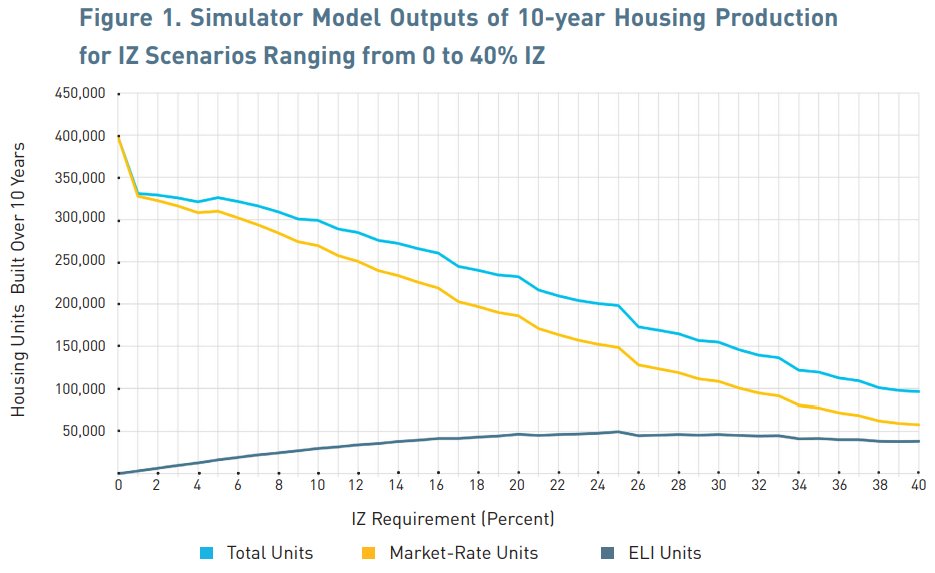
Researcher @UCLALewisCenter. Co-host of UCLA Housing Voice podcast. I wrote The Affordable City. Moved to Bluesky -- same name.
How to get URL link on X (Twitter) App



 Here's a link to the full proposal. If you wanted to build a 170-unit project that was 40% below-market — something that even under current rules and 1.0x prevailing wage is impossible without public subsidies — you've gotta pay 1.6x prevailing wage. santamonicacityca.iqm2.com/Citizens/FileO…
Here's a link to the full proposal. If you wanted to build a 170-unit project that was 40% below-market — something that even under current rules and 1.0x prevailing wage is impossible without public subsidies — you've gotta pay 1.6x prevailing wage. santamonicacityca.iqm2.com/Citizens/FileO…

https://twitter.com/YaleCowles/status/1549842309482790913
 Here's a table of land use regulations for each zone:
Here's a table of land use regulations for each zone: 
https://twitter.com/mnolangray/status/1513029118505357315All else equal, inclusionary zoning policies without any offsetting development bonuses almost certainly make things worse in the long run. I used to be very pro-density bonus, but now I'm ambivalent, though I still lean in support.

https://twitter.com/UCLALewisCenter/status/1504136380384903171This was a selection bias problem that's dogged parking research for decades: Do people drive less because they live in buildings that don’t provide parking, or do they live in buildings that don’t provide parking because they drive less? AMB's work gives us a definitive answer.


 Note: I'm not a traffic engineer and I'm sure there are cases where this doesn't hold true, where "busy" or "messy" designs make things more dangerous. But roundabouts are a good example: lots of people find them unpleasant or uncomfortable, but they're quite safe as a result.
Note: I'm not a traffic engineer and I'm sure there are cases where this doesn't hold true, where "busy" or "messy" designs make things more dangerous. But roundabouts are a good example: lots of people find them unpleasant or uncomfortable, but they're quite safe as a result.


 The opening to this letter is pretty 🔥🔥 though. clkrep.lacity.org/onlinedocs/202…
The opening to this letter is pretty 🔥🔥 though. clkrep.lacity.org/onlinedocs/202… 


https://twitter.com/davideryu/status/1143562203343097857The goal of Ellis Act reform shouldn't be to stop redevelopment, but to discourage it where the difference between existing bldgs and future projects isn't that great. Replace a duplex with 40 units including 6 affordable? Awesome. Replace 20 units with the same? Not so much.